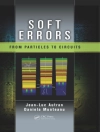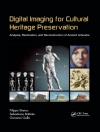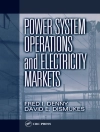This book contains peer-reviewed papers from International Conference on Renewable and Clean Energy 2022 (contributions from various authors from all sectors of academia and industries), exploring cutting-edge solutions and best practices for renewable and clean energy technologies for achieving the UN’s SDG7 to ‘ensure access to affordable, reliable, sustainable and modern energy for all.’ This book presents innovative grid integration technologies for techno-economic operation of renewable and clean energy technologies (e.g., solar photovoltaic, wind energy, hydrogen technologies including electrolyzer and fuel cell, energy storage technologies, etc.). It covers key aspects on energy conversion systems related to renewable energy technologies and their grid integration, techno-economic power dispatching from the distributed environmental-friendly energy sources considering combined heat and power applications, electrical energy network operation with increasing penetration of renewable energy sources, energy efficiency and demand side management, e-mobility, including machine learning applications for intelligent operation of energy systems, etc. The key objective of book is to educate the readers on how sustainable energy technologies can be integrated with energy conversion processes for achieving net zero targets in real-world applications. The book will serve as a useful reference for graduate students, academicians, industry professionals and policy makers interested in exploring the potential of energy technologies in development of sustainable energy system.
विषयसूची
Enhanced State and Parameter Estimation within Reconfigurable Battery Systems for Electric Vehicles.- Identification of Flow Regime in Transition Region of High-Pressure Gas-Liquid Two-Phase Flow Using Image Reconstruction and Machine Learning.- MEMS electric field sensor with biased electrically floating cover to measure electric field in ionic environments.- A New Approach for Plugin Hybrid Vehicle Conversions Using Lithium Battery Packs in Spare Tire Location.- Controller Chip Design of Dual-Clamped-Voltage Coupled-Inductor Switched-Capacitor Converter.- Simulation-based solar PV module maximum output power and dust accumulation profiles.- Thermal Resistance and Numerical Simulation Analysis of Blast Furnace Stave.- Quantitative Analysis of Key Influencing Factors of Renewable Energy Accommodation in Hunan Power Grid.- Solar-Powered Refrigeration Systems for Sub-Counties Health facilities for COVID-19 Vaccines Storage; Opportunities, Challenges, and Future Prospects.- Explicit Analytical Approach for Electromagnetic Modeling of Arbitrary Pole Pair Induction Machines.- Design and Characteristic Analysis of Microgrid and Mobile Energy Storage Link.
लेखक के बारे में
Professor Mohan Kolhe is with the Faculty of Engineering and Science as full professor in Energy Systems Engineering with focus on Smart Grid and Renewable Energy Systems. He has also received the offer of Hafslund Professorship in Smart Grid from the Norwegian University of Science and Technology (NTNU). He has more than twenty-five years’ academic experience at international level on electrical and renewable energy systems. He is a leading renewable energy technologist and has previously held academic positions at the world’s prestigious universities, e.g., University College London (UK/Australia), University of Dundee (UK); University of Jyvaskyla (Finland); and Hydrogen Research Institute, QC (Canada). He was a member of the Government of South Australia’s first renewable energy board (2009–2011) and actively contributed on developing renewable energy policies for South Australia. His academic work range from the smart grid, grid integration of renewable energy systems, energystorage, electrical vehicles, home energy management system, integrated renewable energy systems for hydrogen production, techno-economics of energy systems, solar and wind energy engineering, development of business models for distributed generation. He has been successful in winning research funding from prestigious research councils (e.g., EU, Norwegian Research Council, EPSRC, BBSRC, Northern Research Partnership Scotland, etc.) for his work on sustainable energy systems. He has published extensively in the area of Energy Systems Engineering. He has been invited by many international organizations for delivering expert lectures/courses/keynote addresses. He also has been a member of many academic promotion committees as well as expert member of international research councils.












